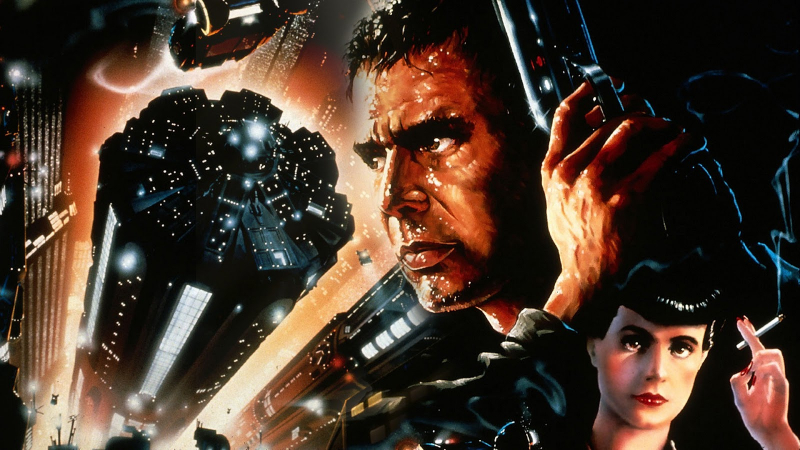Blade Runner (1982)
The next film on our list of the best sci-fi movies is Blade Runner (1982). A future based on science that allows men to take on the role of God. What is it that they have created? Forced into slave labor and born with a ticking-clock expiration date, artificial intelligence is more human than human. Deckard, an ex-cop and ex-Blade Runner, is tasked with putting down a gang of rogue Replicants. This is the foundation upon which Ridley Scott's masterwork is built. Around that underlying assumption comes the stuff that makes great science fiction: moral and ethical problems that are tough to navigate and even more difficult to satisfy convincingly on screen.
Scott easily knows how to tell this tale — you can feel it in every frame, every cut, and every music cue — using Philip K. Dick's source material as a blueprint to build a detective story that wants to be about more than just Deckard catching his victim. Scott and his production team imagine a futuristic Los Angeles replete with neon and skyscrapers piercing a perpetually rain-streaked sky. Blade Runner is film noir science fiction from the top down, as unique and vibrant as the androids from which its protagonist must retire. The film's influence on visual storytelling is indisputable.
Blade Runner is also a genre classic and triumph because every single one watching is the same; you'll notice a new detail here or pick up on a different subtext in a line of dialogue there. You'll believe you've grasped the movie's message, only to learn you've just scratched the surface. Blade Runner 2049 may take a few more years and a little more perspective to make our list, but Denis Villeneuve's sequel, 35 years later, is a visual feast that skillfully expands on the original.
Director: Ridley Scott
Stars: Harrison Ford, Rutger Hauer, Sean Young
Runtime: 117 mins











